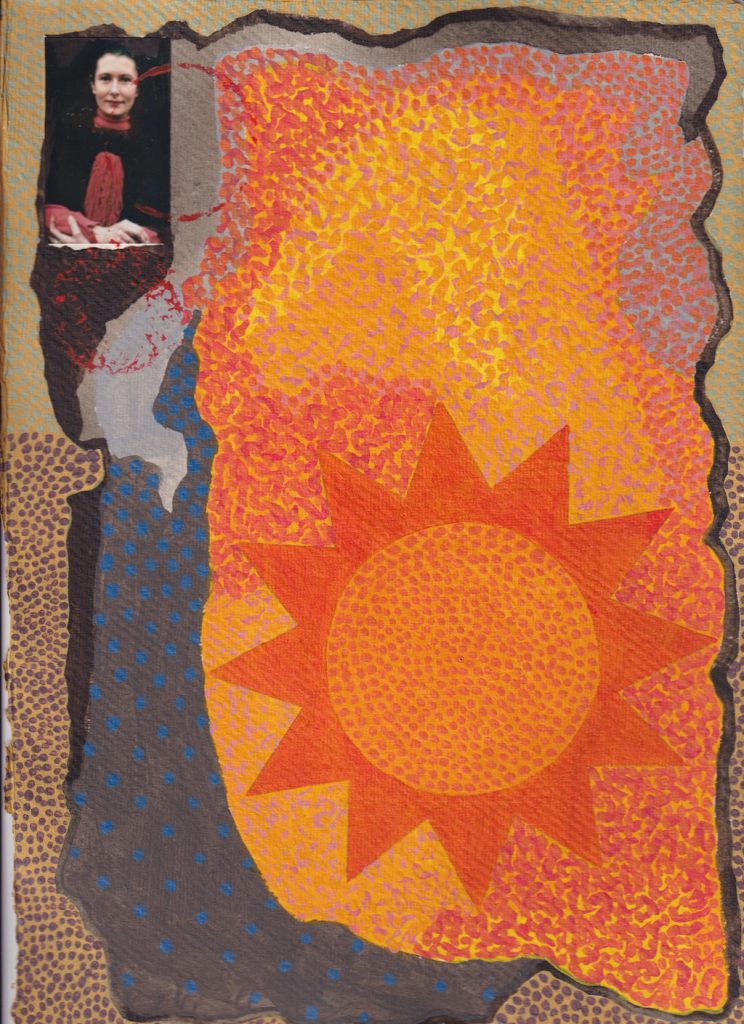
Some say she was the moon, but this was before the dim days of the moon worshipers. (In Gaelic too, as with all the Celtic peoples, it is not the moon but the sun that is feminine). She may have been an ancestral Brighde, or that mysterious Anait whose Scythian name survives elsewhere in the Gaelic west, and nothing else of all her ancient glory but that shadowy word.
Fiona Macleod
The analytical psychologist Genette Paris writes: ‘Usually, when a woman withdraws into a territory closed to a male, she is perceived as a pariah, a sorceress, or a crazy woman’ (Pagan Meditations Dallas, Texas, Spring Publications Inc. p. 109). The second lecture reproduced in Paula Meehan’s Imaginary Bonnets With Real Bees In Them is named for her poem The Solace of Artemis. I now realise how much my hinterland wandering has been shadowed by that Great Lady, who is also named in The Forgetting, a “spell poem” in which Grace Wells asks for forgiveness from her sleeping daughter Holly for our culture’s “forgetting” of so many goddesses (2015) ‘The Forgetting’ in Fur Dublin, The Dedalus Press, pp. 54-55).
How, today, to acknowledge Meehan’s sense of Artemis? We have no ritual equivalent to the burial of the “young person” (the archaeologists won’t say more than “almost certainly female”), whose cremated remains were folded into the section of a bear pelt. A find in an early Bronze Age cist on Whitehorse Hill, some six hundred metres up on Dartmoor. An figure perhaps also wrapped in a sense of Meehan’s Mother-Bear and, as the archaeologists tell us, buried with the scent of the meadowsweet that returns in Kathleen Jamie’s poem. Was “she” somehow linked to Artemis Bear-Mother, the Mistress of the Animals, the Loathly Lady, the Cailleach, the Old Mother, the shape of the land itself as the Oldest “Mother” to us all? Whatever the case, it’s the Cailleach, divine hag and Ancestor, who offers a path to an historical grounding through the last request of the poet and hunter Dòmhnall mac Fhionnlaigh nan Dàn (Donald MacKinlay).
It all began when he meets the Cailleach of Ben Breck. In return for sparing one of her hinds, she ensured that the deer never caught wind of him when he was out hunting. She may have been part of an ancient deer cult overseen by women who ‘never appear in the tales as priestesses but as witches’, as ‘bean-sidhe or supernatural woman’ who give ‘hunters blessings and charms to procure them success in the chase’ (Quoted in Sorita d’Este & David Rankine Visions of the Cailleach London, BM Avalona p.81). The story proceeds as follows (In the next card I will paraphrasing the account given in Hunter-Bard: Donald MacKinlay of the LaysTuesday, 10 September 2013 at: https://calumimaclean.blogspot.com/2013/09/hunter-bard-donald-mackinlay-of-lays.html#).